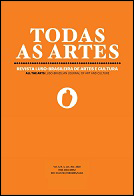“Perseguindo os Ventos do Tempo”: jovens, passados compostos e futuros possíveis
Resumo
On the occasion of the publication of the latest book in Spanish by José Machado Pais (Youth and creativity, 2020), this conversation with Carles Feixa reviews the personal and intellectual career of this Portuguese sociologist, one of the leaders in youth studies in Europe and Latin America. After evoking the teenage and youth of the protagonist in Portugal in the 1970s -around the red carnation revolution of 1974 that ended the Salazarist dictatorship- and reviewing his academic influences, the text focuses on his contributions to the study of Portuguese and later European youth, as well as their connections with researchers from Brazil and Latin America. In the final part of the article he exposes the origin and content of the last of his books, in which he gathers five fundamental essays on youth creativity. This search for «the winds of time» does not imply any value judgment on young people in general or on a generation in particular, but rather an epistemological bet to reveal the hidden faces of a social
emergency, projecting towards the future -or towards the no future- the complexities of the past.
Downloads
Publicado
Edição
Secção
Licença
- Declaração de consentimento
- Declaration of Consent
- § Todos os trabalhos publicados na revista Todas as Artes são abrangidos pela Licença Creative Commons Atribuição 4.0 Internacional (CC BY 4.0). Sob estes termos os autores conservam os seus direitos de autor e concedem à revista o direito de primeira publicação, permitindo a publicação, reprodução, distribuição, exposição e armazenamento do trabalho a nível nacional e internacional e em todos os formatos, formas e meios de comunicação atualmente conhecidos ou a desenvolver no futuro, incluindo formatos impressos, eletrónicos e digitais.
- § Os autores têm autorização para assumir contratos adicionais separadamente, para distribuição não-exclusiva da versão do trabalho publicada nesta revista (ex.: publicar em repositório institucional ou como capítulo de livro), com reconhecimento de autoria e publicação inicial nesta revista.
- § Os autores têm permissão e são estimulados a publicar e distribuir o seu trabalho online (ex.: em repositórios institucionais ou na sua página pessoal) a qualquer ponto antes ou durante o processo editorial, já que isso pode gerar alterações produtivas, bem como aumentar o impacto e a citação do trabalho publicado.



